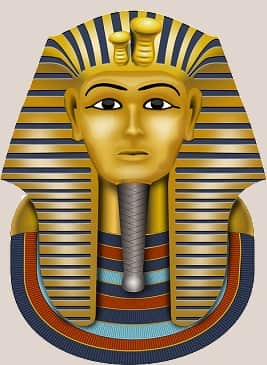| Back to Back Issues Page |
 |
|
Diggings: the Single-minded Adventurers of Early Archeology #128 May 07, 2019 |
Diggings: the Single-minded Adventurers of Early Archeology #128Daring, ambitious, single-minded adventurers popularized the field of archeology in the late 19th and early 20th century. They were heroes to many (including my father—which may be why I couldn’t resist these articles.) I think you’ll find these stories fascinating even without that personal connection. The Man who Discovered King Tut’s TombThe first article tells the dramatic story of Howard Carter. His early fascination with ancient Egypt eventually led to the discovery of the untouched wealth of artifacts in King Tut’s tomb—after several setbacks that had looked like the end of all his hopes.He had to resign from his dream job with the Egyptian Antiquities Service after he defended one of the Egyptian guards working on an excavation site. Then when he got an unexpected opportunity to return to Egypt and search for more ancient tombs. However, after years without finding much, his wealthy sponsor was ready to quit. As the article notes, it was his “resilience and persistence” that led to his big discovery.
Returning to an area they had already searched, Carter’s team made one last attempt—and almost by accident discovered a hidden, sealed doorway that proved to be the entrance to King Tut’s tomb. Because several of its rooms had not been found by grave robbers, it still held a collection of golden treasure. The find helped inspire a new generation of archeologists. Uncovering Ancient TroyThe story of locating the site of ancient Troy is complicated. Heinrich Schliemann was a brilliant man who excavated it and wrote the story of his discoveries. he claimed (and for half a century he got) full credit for figuring out that it was a real city and discovering its ruins. However, he left out his debt to Frank Calvert’s work.Recent research has shown that Frank Calvert was convinced of the correct site of Troy and began to dig there years before Schliemann. He was unable get funding, so he shared his findings with Schliemann, hoping he would continue the work. One scholar familiar with the story concludes that “Schliemann was not simply a liar and a con man, but rather an ‘extraordinarily talented yet flawed man.’" Finding a Secret City in the AndesI want to include one more brief article , because it ties this issue of English Detective with the next.It’s about Hiram Bingham, the American professor who believed there must be an undiscovered Inca city hidden in the Andes- and introduced Machu Picchu to the western world.
Archeology Vocabulary PracticeYou can practice the vocabulary in this issue with a crossword on archeology. (Its answers are here. )Here are a few explanations of words used in the articles that aren’t on the crossword: Diaries are personal records of each days’ experiences. Some people keep detailed, complete diaries; others just note highlights of their days or months, and most people don’t keep a record at all. Dug is the simple past tense (irregular) or past participle form of ‘dig.’ “The boy dug a hole to bury his dead pet lizard. He covered the body with the dirt he had dug out and put a flower on top of its grave.” Flawed means imperfect, with serious faults. Practice Personality Trait VocabularyHere’s some matching practice+. (See especially the matching section below the interactive game.)Did you notice that several of the personality trait adjectives (competent, diligent, persistent…) ended in the suffix -ent? Here are a few more: consistent, efficient, excellent, negligent, proficient, resilient. The related nouns for these characteristics (including those on the practice page) are competence, consistency, diligence, efficiency, excellency, negligence, persistence, proficiency, resilience. A few definitions and examples: Competence is ability to do a job well. Proficiency is a synonym: similar in meaning. Someone who is consistent does the same quality of work every time. He or she doesn’t do excellent work at times and careless work on other days. Negligence is neglecting things that need to be done. (Diligence would e a near opposite.) Persistence is a determination to keep doing something even when there are obstacles. (It’s usually a good trait, but can be related to stubborness.) Resilience is the ability to “bounce back” (recover) from difficulties. In the next issue you can review this vocabulary & read the story of another ‘digger’ (an adventurer who discovered the first dinosaur eggs, and a lot more). The issue looks at how he, Howard Bingham, or similar bold explorers served as real-life models for Indiana Jones. Warmly, Catherine Simonton, EnglishHints.com P.S. If you don’t like to open links in emails, you can go to the EnglishHinks Back Issues page and open them there. It’s https://www.englishhints.com/English_Detective-backissues.html A note if you get gmail: Have you missed any issues of English Detective? if you find English Detective in your Promotions box, you can move it to your Primary box (if you want) by clicking on it and dragging it there, then clicking Yes when asked if you want to always get it in the Primary box. If you are not already getting English Detective, you can subscribe by completing the form here. (It's free!) Also, you can reach me by mail at 1752 Driftwood Drive, El Centro, CA 92243, USA. |
| Back to Back Issues Page |

